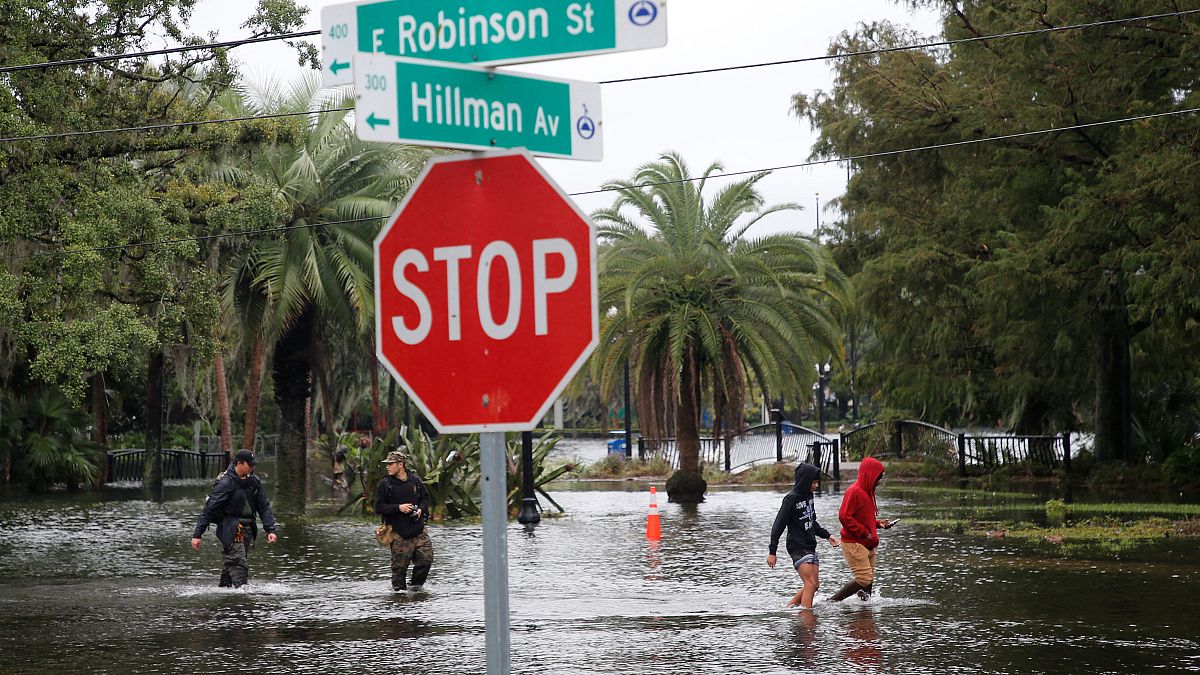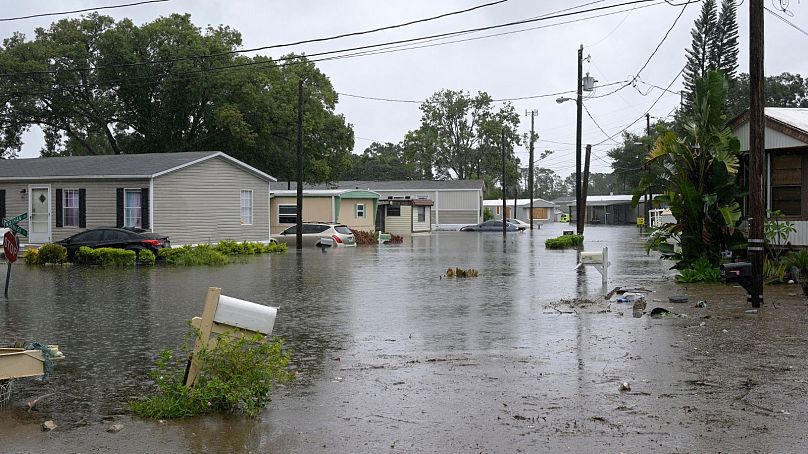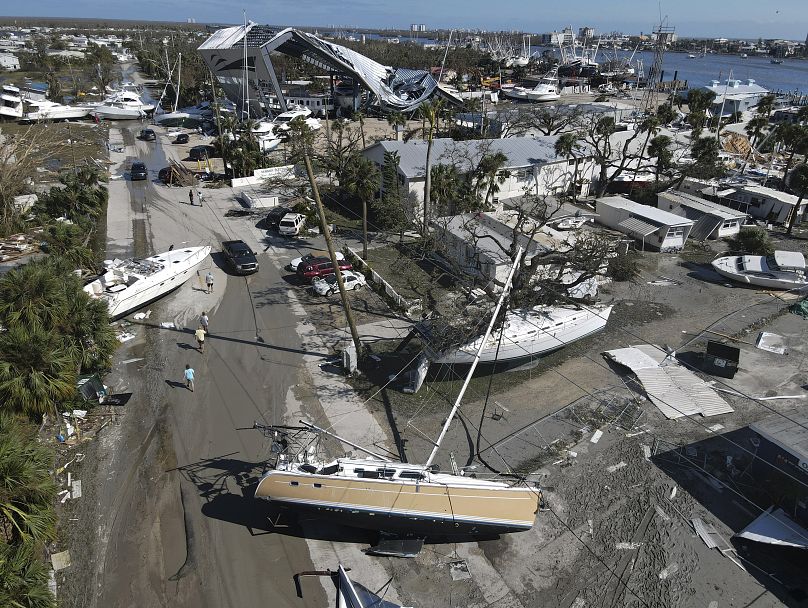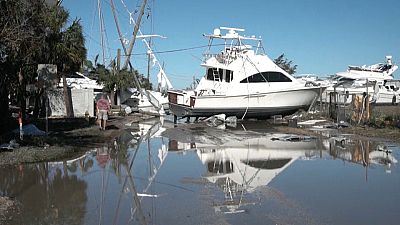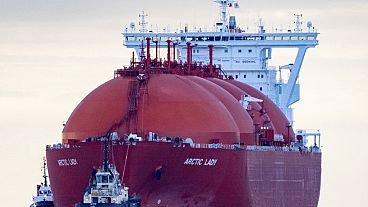Scientists think warmer ocean waters are making strong hurricanes stronger.
On Wednesday night, Hurricane Ian swept through the state of Florida in the US, leaving over 2.5 million people without power, flooding residential cities and damaging homes.
Classified as Category 4 - the second strongest storm with winds between 1360 and 156 mph - the hurricane moved inland from the coast of Florida, becoming the most powerful to ever hit the US and the first to strike the Sunshine State since October 2018.
Though the full extent of damage caused by the storm is still unfolding, with the extreme weather conditions delaying emergency operations until Thursday morning, at least 12 people are believed to have been killed by Hurricane Ian. The death toll could grow in the coming hours.
Florida was aware that danger was coming. Before hitting the US southern state, Hurricane Ian had wreaked havoc in Cuba, where it killed two people and brought down the country’s entire electrical grid, leaving millions literally in the dark.
And yet the strength of the hurricane grew surprisingly fast on its way to Florida, in just two days. On Monday, it had a speed of 75 mph. By Wednesday, it reached speeds of up to 155 mph.
"I remember a few days ago… it was forecasted to make landfall as a Category 1, some three days ago. That changed within 24, 48 hours," Ralf Toumi, co-director of the Grantham Institute - Climate Change and Environment - at Imperial College London, told Euronews on Thursday.
This phenomenon is called 'rapid intensification', and weather and climate experts say there's evidence this is happening more often and hurricanes are getting more powerful because of global warming.
Did the climate crisis fuel Hurricane Ian?
In short, yes. But the full impact of global warming on hurricanes is still hard to assess.
"There have been many studies on the impact of climate change on hurricanes," says Toumi. "And actually even from very basic and very simple physical arguments, we expect the wind speed to increase with increasing ocean temperatures and also the rainfall to increase with warmer temperatures."
Hurricanes "come from deeper into the ocean," Toumi explains. Hurricane Ian was "born" thousands of kilometres away from Florida, starting off as a small disturbance over warm water.
There, it began to draw in moisture and rotate, organising rain and wind above it, creating heating inside the cyclone and spinning more and more as a result of this phenomenon, like any other hurricane.
That spinning, Toumi explains, creates "a positive feedback" that makes the winds stronger, in turn creating more water vapour from the ocean and consequently more rain, which fuels "the whole engine of the cyclone". This way, hurricanes undergo rapid intensification.
"From a relatively small disturbance, if the conditions are right, the oceans warm enough, there’s plenty of moisture, they can go through positive feedback quite quickly, within days," says Toumi, "and become very strong and powerful storms."
Hurricane Ian first landed in Cuba, weakened briefly, hit another warm water patch and then rapidly became stronger and made landfall again in Florida. It then went back over the ocean and was downgraded to a tropical storm before increasing back to a hurricane by Thursday evening.
It is now barrelling towards South Carolina where it is expected to make a third landfall.
Hurricanes have not increased in number in recent years as global temperatures rose, but they have grown in strength. "What you're actually seeing is a sort of shift towards stronger and stronger storms," says Toumi.
So when asked if climate change has impacted Hurricane Ian, Toumi says he expects the answer to be yes. "It's not that we don't know… [but] we still need to do the study [on it]," he says.
Hurricanes that make landfall are so rare that scientists have only "a handful of cases" to study the impact of climate change. "It's a problem of sample size," Toumi says. "These things just don't happen very often. So that makes it difficult to say this is unusual."
On top of that, the biggest impact that global warming is likely to have on hurricanes is on the rain levels, Toumi explains, rather than wind speed. But rain distribution is more complicated to study.
It will take weeks, even months, for the experts to have a definite answer.
"The signal is definitely there," says Toumi. "There's only ever a question of how big of a factor it is."
How is the situation in Florida likely to develop?
When Hurricane Ian weakened to a Category 1 storm, it didn’t become any less dangerous, says Toumi.
"If the storm is very big and very slow moving, it doesn't have to be very strong."
A slow-moving but huge Category 1 or 2 hurricane can "create what's known as a storm surge," Toumi explains. "So then you can, over a prolonged period of time, pile up huge amounts of water onto the coastline." A slow-moving, weaker storm can create a huge amount of surge and flood entire cities, Toumi adds.
That's why Florida authorities are still warning residents impacted by the storm against leaving their homes or to be careful when going outside.
With the storm now back at hurricane status, and a third landfall on the cards, it is likely to cause further damage - this time in South Carolina.
Will climate change make hurricanes even worse in the future?
We don't know for sure the full impact that climate change will have on hurricanes, but there are signs that warmer temperatures might lead to stronger hurricanes.
"Climate change is leading to more intense hurricanes, as they rely on warm oceans to provide their moisture and energy, and ocean temperatures are increasing, allowing more intense storms that deliver more rain," John Marsham, professor of atmospheric science and Met Office Joint Chair at the University of Leeds, tells Euronews.
"Furthermore, the slowing of upper-level winds may lead to slower moving storms, which therefore deliver great rainfall accumulations. In addition, climate change has and will increase sea-levels.
"This isn't all from melting ice, much is from sea water expanding as it warms. There is already a measurable increase in sea level off Florida. More intense storms from climate change also generate stronger storm surges, increasing flooding further," he adds.
